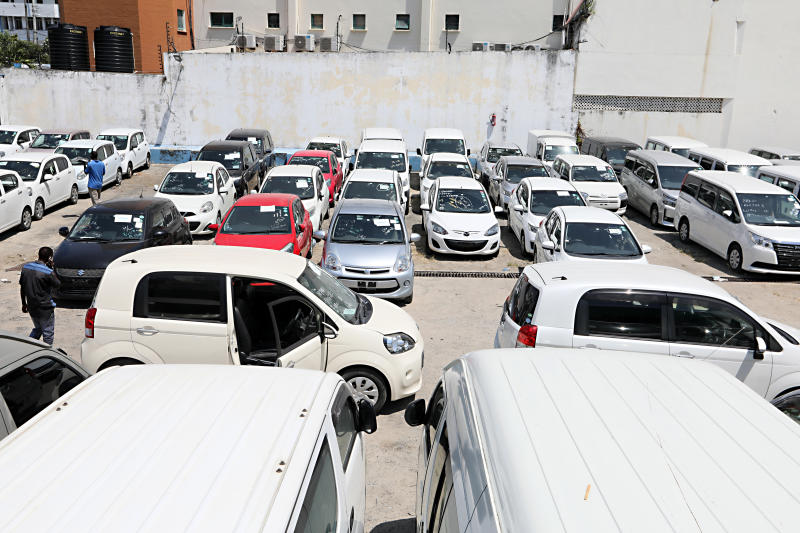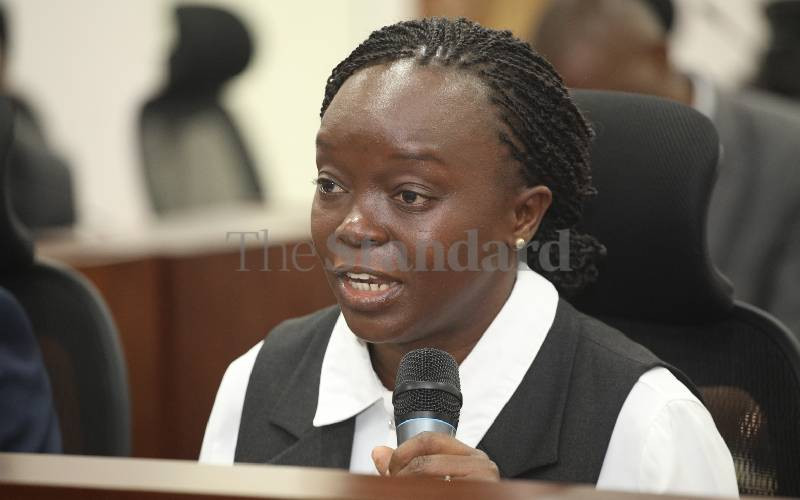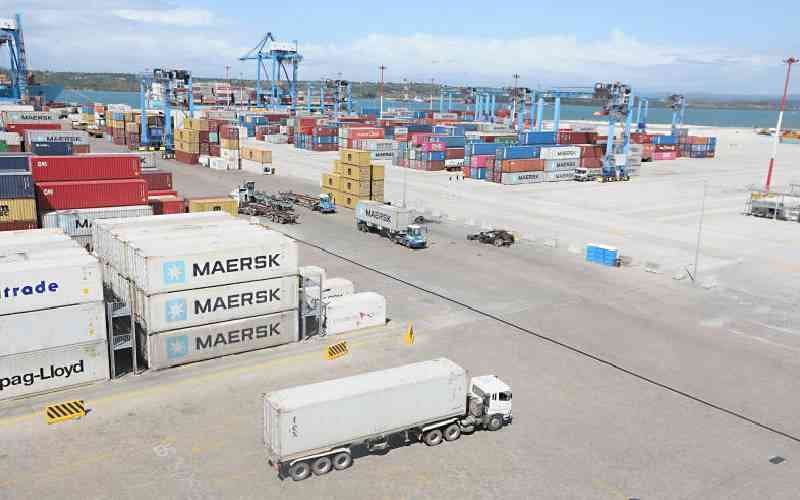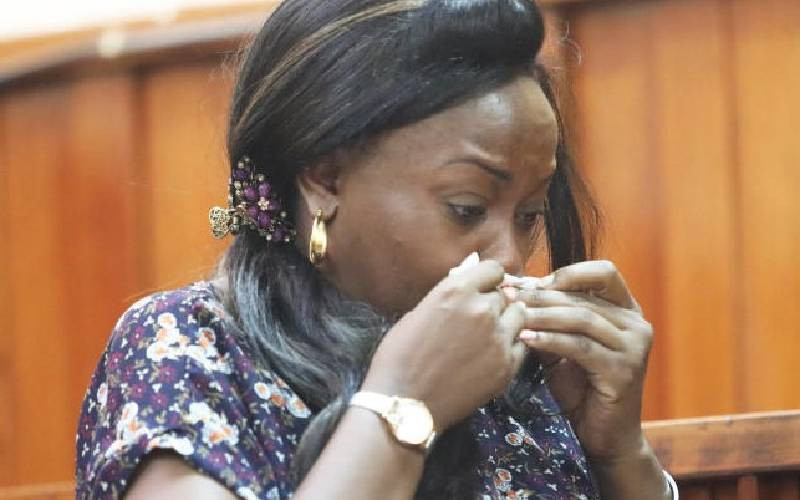
Some of the imported vehicles at Canon Motors showroom in Mombasa. The number of car bazaars in the coastal city has gone up. [Omondi Onyango, Standard]
Mombasa is turning into a grand car bazaar city like Dubai, thanks to a growing class of middle income earners with an appetite for trendy brands of second hand imported vehicles mostly from Japan.
With a clientele from upcountry, mainly Nairobi, Mombasa is bubbling with the fast growing business that has seen some storey buildings brought down to create space for showrooms.
This has mostly happened along major roads particularly to the west of the island close to Kilindini Port.
Many of the mushrooming showrooms have been established in buildings that appeared to have had little activity in the past.
Peter Otieno, National Chairman of Car Importers Association of Kenya (CIAK), observed that the car bazaar was now the main business in Mombasa.
Mr Otieno said proximity of the showrooms to the port has made car business flourish; it is cheaper to stock the cars in Mombasa warehouses that transporting them for sale in Nairobi.
“If we transport vehicles to Nairobi, they are exposed to dangers like hijackings, accidents and attract costs. They are no major costs if they are driven a short distance from the port to the showrooms in Mombasa,” he explained.
Moi and Haile Selassie avenues host most of the more than 200 showrooms in the port city.The sub-sector, which according to CIAK is valued at about Sh260 billion, is giving life to Mombasa after tourism taps ran dry when Covid-19 struck.
Between 9,000 and 13,000 vehicle units are imported through the port in a month, according to CIAK data .
Former Kenya International Freight and Warehousing Association Mombasa Branch Chairman Salim Mbarak observed it is cheaper to buy vehicles in Mombasa compared to Nairobi.
“More people are importing vehicles before the new year to beat the deadline by which importation of cars that are eight years or older will be banned,” said Mr Mbarak
“If government lowers the age to five years, there will be an automatic reduction in imports.”
Mustafa Ramadhan, Kenya National Chamber of Commerce and Industry Mombasa Branch Chairman said: “The vehicle business is driven by market forces and this is likely to continue as long as there will be peaceful elections next year.”
Brokers in the car bazaars are reaping big; earning between Sh30,000 and Sh200,000 per unit sold depending on the price.
Second hand vehicles like Suzuki auto can go for as low as Sh550,000 but those going for Land Cruisers fork out upto Sh18 million.
Otieno said the second hand vehicle business in Mombasa has been growing at the rate of 25 percent in the last eight years.
A broker said many of his colleagues have attached themselves to showrooms that have whatsapp groups to drive the sales.
Most of the showroom owners are foreigners who mainly buy the second hand vehicles at auctions in Japan and export them to Mombasa.
Otieno explained that empty buildings, some of which used to house handicraft shops in the tourism industry, have been turned into showrooms to give landlords income; Others have been pulled down after being sold to car dealers to create space for car bazaars.
“This is a new booming business here in Mombasa. In the 1980s, there were godowns that were used for break bulk cargo,” Otieno said.
“They attracted many workers before such operations were automated. There were also big transport companies which have since disappeared.”
The second hand business started in the 1990s but gathered pace a decade ago.
Some of the popular car brands are Suzuki Auto, Toyota Vitz, Toyota Passio, Toyota Axio, Toyota DX, Toyota Probox, Toyota Succeed and Nissan Note.
Some of the vehicles have come in handy for taxi business while others are used to carry cargo including farm produce.
“The second hand vehicles are modern and attract the middle income earners,” said Otieno.
Otieno noted that business has been vibrant after government ended Covid-19 restrictions. He appealed for incentives for second hand vehicle dealers to enable them create more employment opportunities.
 The Standard Group Plc is a multi-media organization with investments in media platforms spanning newspaper print
operations, television, radio broadcasting, digital and online services. The Standard Group is recognized as a
leading multi-media house in Kenya with a key influence in matters of national and international interest.
The Standard Group Plc is a multi-media organization with investments in media platforms spanning newspaper print
operations, television, radio broadcasting, digital and online services. The Standard Group is recognized as a
leading multi-media house in Kenya with a key influence in matters of national and international interest.











